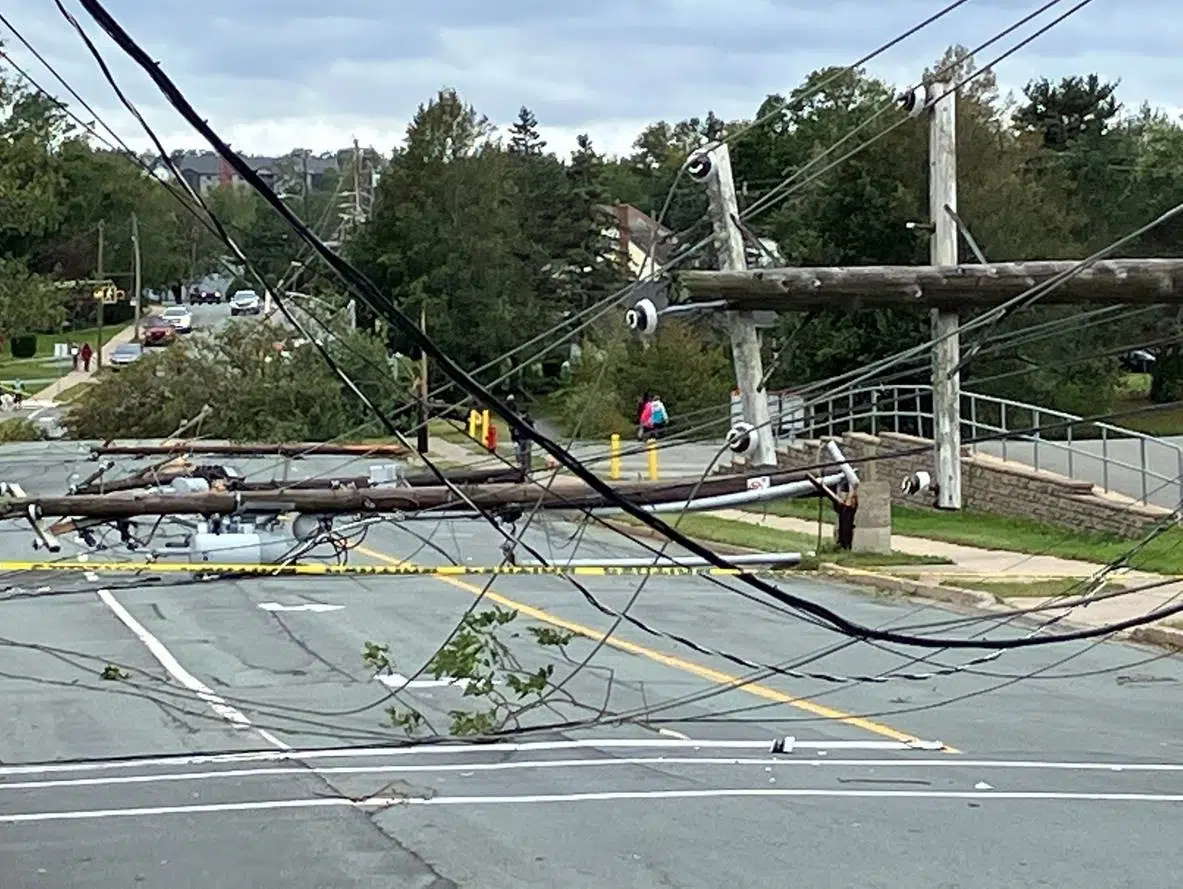Hurricane Fiona is a storm many people living in Atlantic Canada will not soon forget.
Now it has been awarded the distinction of being Canada’s top weather story of 2022.
Environment Canada released its annual list Wednesday, highlighting the significant events from the past year.
“It was another destructive, expensive and impactful year for weather,” said senior climatologist David Phillips.
Phillips said the weather in 2022 was much less dramatic compared to 2021, but was by no means tame.
The senior climatologist compiled a list of more than 100 significant weather happenings across Canada and narrowed it down to 10.
They were ranked based on the degree to which Canada and Canadians were impacted, the extent of the area affected, economic and environmental effects and the event’s longevity as a top news story.
Furious Fiona strikes Eastern Canada
Hurricane Fiona struck Eastern Canada in late September after what had been a remarkably slow and quiet beginning to the Atlantic hurricane season up until that point.
Fiona merged with a separate storm to create an extremely powerful post-tropical system by the time it arrived in Eastern Canada.
But the storm lost little of its strength, making landfall in eastern Nova Scotia on Sept. 24 with sustained winds of 165 kilometres per hour, similar to a Category 2 hurricane.
“What was so remarkable was the central pressure was 932.7 millibars. That is the lowest pressure of any storm that we’ve ever documented in Canada,” said Phillips.
Phillips said the slow-moving nature of this storm made it a high-impact event for many communities.
Rainfall amounts of 80 to 150 millimetres or more triggered flash flooding with ponding and washouts, while significant storm surges caused extensive coastal damage and erosion.
In addition, strong winds left more than 600,000 homes and businesses without power, some having to endure outages for more than two weeks.
“They blew consistently for eight to 12 hours. You could actually hear the trees ripping and snapping and being yanked,” said Phillips.
The powerful storm led to three deaths in Eastern Canada and caused insurance losses of at least $846 million.
January storm stresses Atlantic Canada
Also making this year’s list, at number 10, was the trifecta of weekend storms that hit the region in January.
Powerful nor’easters, bomb cyclones and blizzards originating in the United States pummelled Eastern Canada with snow, rain and wind.
“Where the snow fell, drifts piled into massive heaps with winds causing a lot of whiteouts. Where it was rain that fell, there was concern about flooding,” said Phillips.
The trilogy of storms left a trail of closures, cancellations and power outages nearly every January weekend, he said.
St. John’s and Sydney set records for the rainiest January ever, while Charlottetown recorded the snowiest January in history with 150.9 centimetres.
Fall feels more like summer
Number four on this year’s list is what Phillips called a “return to hot and dry weather under the dome.”
Summer was the third warmest on record, with temperatures on average nearly 1.6°C above normal.
In Eastern Canada, we saw four bonus weeks of summer warmth between October and early November.
“We’ve never seen such a beautiful stretch of weather from Thanksgiving to Remembrance Day that we had here in Eastern Canada,” said Phillips.
More than 200 heat records were set in November across the east and many daytime highs exceeded 20°C.
Places like Fredericton, N.B., and Kentville, N.S., recorded their all-time warmest temperatures for the month.
Sea surface temperatures were also 3°C to 4°C warmer than normal for that time of the year.
Other stories on the list
Other parts of Canada were not immune from large weather events which made this year’s top 10 list.
British Columbia and Newfoundland and Labrador were impacted by massive forest fires over the summer months.
A humongous rain system swamped Montreal in mid-September with between 80 and 110 millimetres of rain falling in just two hours.
And a swath of downburst winds known as a derecho caused more than $1 billion of damages in Ontario and Quebec just before the May long weekend.
You can find the full top 10 list, along with regional weather highlights and runner-up events, by clicking here.
Canada’s Top 10 Weather Stories 2022
🔴 #LIVE now: David Phillips, Senior Climatologist, presents the #Top10Weather stories in Canada for 2022.
Posted by Environment and Climate Change Canada – Weather on Wednesday, December 21, 2022








